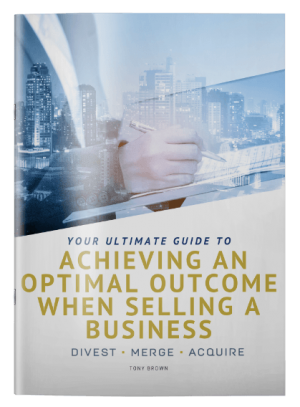Successful Business Owners who are smart in their field may have a brain lapse in an area they know very little about and succumb to a smooth talking marketeer.
It is easy for Business Owners to fall foul of unscrupulous marketeers offering to sell their businesses (eg via magazines, to overseas buyers, at inflated prices etc).
It is also easy to avoid the pitfalls.
If you are selling your business after many years of working in and on it, it makes sense to choose the right advisor/broker by taking a few simple steps:
1. Eliminate the marketeers via research
Research online the names of any prospective advisory firms coupled with the name of your local consumer protection agency. In Australia, it is the ACCC.
This simple step alone will rule out the firms the regulators have already caught up with!
You’d be surprised to know that they still operate, some with changed names, and STILL catch people EVERY DAY!
It’s exasperating to reputable operators to have to follow behind a marketeer after the Business Owner has sunk $000’s into a black hole and, even more critically, has lost 1–2 years before they realise nothing is going to happen!
2. Ask your trusted business advisor
This normally means your accountant. They are usually dealing with M&A advisory firms in the course of their careers advising their clients. If they don’t know a reputable M&A advisory firm, they can easily tap into their business networks to find one or more.
Almost all of our clients are referred by their accountant, banker, lawyer or a trusted colleague.
3. Contact the firm and talk to an advisor
Ask them to send their information through explaining what size and type of businesses they sell and how they do it.
4. Look for answers to these key questions:
- Does the firm have a record of successful transactions of comparable size?
- Are the key advisors suitably qualified and experienced?
- Will the advisor personally oversee the project?
- Does the firm understand, respect and manage client confidentiality?
- Does the firm hold the appropriate licences?
- How does the firm source target purchasers?
- Will the firm professionally present the business opportunity?
- How well does the firm communicate with clients?
- How well does the firm cooperate with other professional advisors?
- Will the firm provide an indicative valuation before the client commits?
- Does the firm manage the full process to completion?
5. Understand your target market
Bearing in mind that 95% of businesses have fewer than 10 employees and only 5% are likely to be $M+ businesses, you need to choose a firm that handles either the 95% or the 5%, depending on where your own business sits. This is very important as they are marketed in very different ways.
Information about these key questions can be found here: https://divestmergeacquire.com/choosing-an-advisor/how-to-choose-an-ma-advisory-firm-what-to-look-for/

